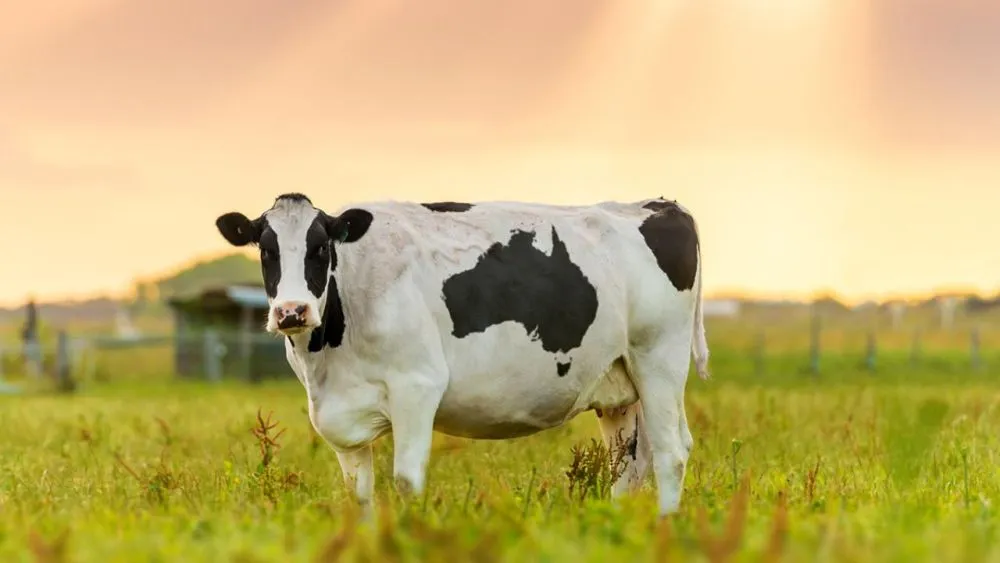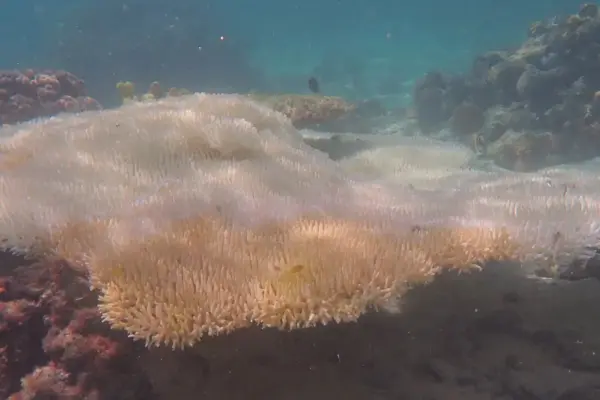Feeding Seaweed to Cows can Drastically Reduce their Contribution to Climate Change
Methane is one of the powerful greenhouse gases. Despite being short-lived, it is the second-largest contributor to climate change after carbon dioxide. A large part of human-induced methane is released from livestock with nearly 70% of the agricultural methane emitting from enteric fermentation, a chemical reaction in the stomach of cows and other grazing animals. A 2015 study suggests that seaweed in cow feed can drastically reduce methane emissions from the animal that further contribute to climate change.
Enteric fermentation is a chemical reaction in the stomachs of cows and other grazing animals, which occurs to break down the food into simple molecules with a release of methane in the rumen. The animals release most of this methane through belching or flatulence.
As there are nearly 1 billion cattle around the world, it is significant to reduce enteric methane to reduce overall methane emissions. Changing the diet of the cows to more digestible food can help but it is not the most cost-effective option. Studies have suggested that adding seaweed to a cow’s diet can help reduce the methane released. However, this observation was done in a laboratory and not in livestock.
In sustainable agriculture, it is observed that using red seaweed as a feed supplement can help control methane emissions and also feed expenses without affecting the feed quality. If these findings are executed and commercialized on a large scale, cattle production can be transformed into a more economical and sustainable industry.
Cattle’s Contribution to Methane Emissions
Ruminant animals including cows and sheep etc. can digest plants that are not digestible by human beings or other animals with a simple digestive system, such as chickens. This unique ability comes with their four-compartment stomach, especially the rumen compartment, which is home to many microbes that feed on fermented food and break down the nutrients. This process also generates substances that the cow’s body doesn’t require including methane. Methanogens, the methane-producing microbes, uses these byproducts to produce methane which is released inside the cow’s body.

According to a study seaweed in cow feed can drastically reduce methane emissions from the animal that further contribute to climate change | Image: UC Davis
This problem was initially studied in a 2019 study that was conducted in cattle instead of a laboratory. The research concluded that adding 10 ounces of seaweed in a day to dairy cow’s feed reduced the methane emissions by 67%. However, this can result in a relatively large diet of seaweed and less feed, reducing the milk production capacity, which is a major setback for dairy farmers.
This study also brings in lots of questions, that would be important to farmers to choose the feed – including whether the microbes producing methane would adapt to the seaweed after a while, making it ineffective, or whether the seaweed would be able to reduce methane emissions in the long-run, etc.
Seaweed in Cow Feed to Reduce Methane Emissions
For the study, 1.5 to 3 ounces of seaweed was added per animal to beef cows’ food for 21 weeks. It took time for the animals to get used to the taste of seaweed supplements, but eventually, they became habitual to it.
The animals released up to 750% of hydrogen through their mouths, as less methane was released from their digestive system but there was no effect on the carbon dioxide levels released in the process. It was also found that the microbes did not adapt to the seaweed in a way to neutralize the effect.
The cows were also fed three different diets. Each sample had a varied proportion of dried grasses, fresh grasses, grains, and byproducts like cotton seeds and almond hull. Methane is usually released when the level of forage, i.e., dried grass is high. The methane emissions from a low forage diet fell by almost 70% to 80%. This difference reflects the low level of enzymes involved in the methane production in a cow’s digestive system.
One of the important findings is that the converted feed added to the body weight by 20% more effectively than usual. This benefit can also reduce the cost of production for dairy farmers because of the reduction in the purchase of feed. The explanation of how cattle seaweed supplements help to convert their diet for more weight gain is still unknown.
The research suggests that rumen microbes can use hydrogen to generate energy-packed nutrients, that can help cows with additional growth. Post-study, a panel of consumers were sampled meat from the cattle used in the study. They were not able to find any difference in flavor or tenderness between cattle with and without the seaweed diet.
Commercializing Seaweed in the Cattle’s Diet
Using seaweed for cattle feed commercially would require many steps and processes. First, scientists need to develop aquaculture systems and methods to produce seaweed in large quantities, either in oceans, tanks, or land. Second, the US Food and Drug Administration needs to approve seaweed as a cattle feed supplement commercially.
Farmers and ranchers need to be educated about the process and proved that they can save a lot of money by adapting to this technique. Climate scientists need to draw a plan for guidance on quantifying, monitoring, and verifying the methane reduction rate from the cattle.
Via: The Conversation


